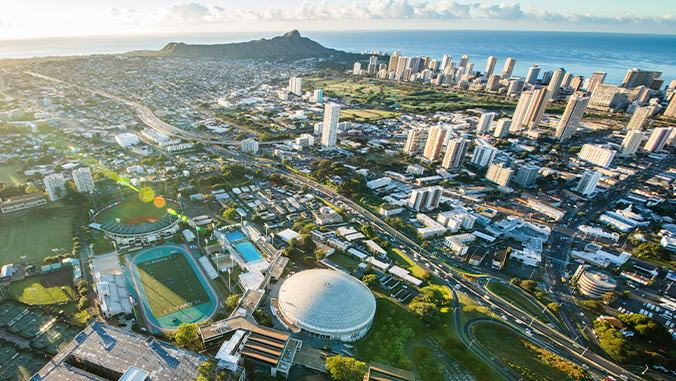
The University of Hawaiʻi at Mānoa commemorates the National Day of Racial Healing on January 18, which serves as an opportunity for communities to take action to create a just and equitable world. The tribute aligns in the wake of two events recognized simultaneously by the university and in Hawaiʻi this month—the anniversary of the overthrow of the Hawaiian Kingdom and Martin Luther King Jr. Day observed on January 17.
Part of UH Mānoa Truth, Racial Healing and Transformation (TRHT) Campus Center’s statement:
- “January 17, 2022 marks the 129th year since the illegal overthrow of the Hawaiian Kingdom. This event was motivated by racism, settler colonialism, and other forms of oppression that continue to shape each of us living in Hawaiʻi today. There is still much healing that is necessary on individual, family, communal, and systemic levels.”
“The challenges of racism in Hawaiʻi and across the United States are great. But there is also great hope, as seen in the wise words of our kupua like Keaomelemele to the visionary work of Dr. King to the innovative steps being taken by so many of our young people today.”
UH Mānoa TRHT invites community to reflect
UH Mānoa is one of 49 TRHT Campus Centers across Hawaiʻi and the U.S. selected to implement ambitious, visionary action plans that tackle historical and contemporary effects of racism. The TRHT Center at Mānoa is deeply rooted in ʻike Hawaiʻi (Hawaiian knowledge) and led by the Native Hawaiian Place of Learning Advancement Office. Its Hawaiʻi-grounded approach envisions a pae ʻāina ʻo Hawaiʻi (Hawaiʻi archipelago) in which each individual, family and community recognize their collective and interdependent kuleana (responsibility) regardless of race to aloha one another and ʻāina (our island home). This interwoven approach has been recognized on a national platform.
In fall 2021, the UH Mānoa Center hosted “TRHT Tuesdays,” an assortment of free events to help students, faculty, staff and the community better grasp its mission. Participants were invited to presentations and pilina circles. Pilina which means association, relationship or connection describes the spaces where individuals were asked to share personal moʻolelo (stories) and rediscover connections. The center plans to host more events this spring. Sign up to receive announcements about future events.
To learn more about National Day of Racial Healing and to access resources, visit the UH Mānoa TRHT Campus Center website.
This effort is an example of UH Mānoa’s goal of Becoming a Native Hawaiian Place of Learning (PDF), one of four goals identified in the 2015–25 Strategic Plan (PDF), updated in December 2020.

